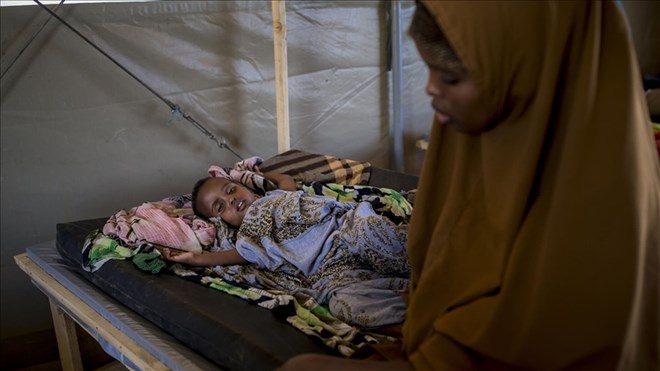According to the World Health Organization, this year has seen a “unprecedented” number of larger and more lethal cholera outbreaks recorded in almost 30 different nations.
At a UN press briefing, the WHO stated that it is monitoring cholera outbreaks in 30 African nations as well as an uptick in Haiti.
According to the WHO, estimates from researchers place the number of cholera cases at 1.3 to 4 million per year, with 21,000 to 143,000 cholera-related deaths occurring globally.
According to Philippe Barboza, head of the WHO’s cholera and epidemic diarrheal illnesses division, “the situation is quite unique, for not only are we witnessing more outbreaks, but these outbreaks are larger and more lethal than the ones we have seen in the past years.”
And after several years of consistent declines in the number of cases yet fatalities, he continued, “and this growing number of cholera outbreaks are occurring.”
According to Doctors Without Borders, cholera outbreaks occurred this year in refugee camps in Lebanon, Somalia, and Nigeria.
Impact of climate change that is quite evident
The germs that cause cholera invade the intestines after a person consumes tainted food or water.
Vomiting and diarrhea are common symptoms, and young children are particularly at risk.
“A very evident impact of climate change is again relatively new from the beginning of the year and the end of last year,” said Barboza.
The majority of these larger outbreaks are a direct result of the rise in severe climate issues, as is the fact that they are all happening at once and complicating the situation greatly.
In the Horn of Africa, the Sahel, and other regions of the world, for instance, massive floods, unheard-of monsoons, and a string of cyclones are still being caused by climate change, according to Barboza.
“Unfortunately, things won’t improve anytime soon,” he added.
Cholera is unquestionably a disease of fragility and poverty, according to the WHO official.
The most vulnerable segment of the population in any given nation is most at risk, and this is true for a simple reason: they lack access to potable water and minimal sanitary facilities.
For the majority of patients with cholera, oral rehydration is used, whereas intravenous rehydration is used for more severe cases.

